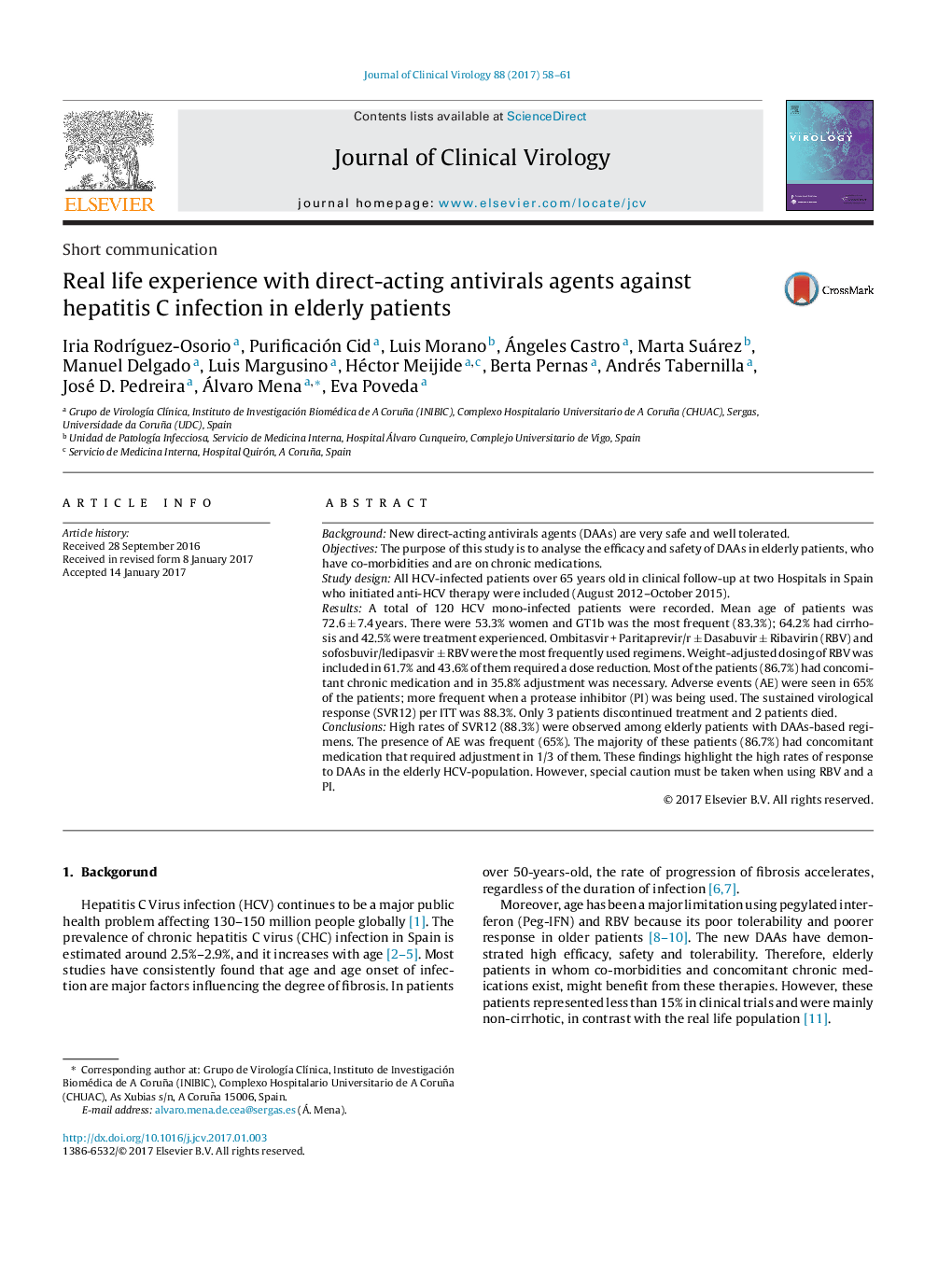| کد مقاله | کد نشریه | سال انتشار | مقاله انگلیسی | نسخه تمام متن |
|---|---|---|---|---|
| 5668012 | 1592338 | 2017 | 4 صفحه PDF | دانلود رایگان |

- Efficacy and safety of different DAAs have opened the possibility to treat many special populations as elderly patients.
- Most of elderly patients are on chronic medications (86.7%). An adjustment was needed for 35.8% of patients.
- This study identifies ribavirin and protein inhibitor based regimen as the most likely drugs to cause adverse events.
- Two patients were diagnosed with hepatocellular carcinoma during treatment.
- ITT analyses showed a sustained virological response of 88.3%. No associated factor was linked to treatment failure.
BackgroundNew direct-acting antivirals agents (DAAs) are very safe and well tolerated.ObjectivesThe purpose of this study is to analyse the efficacy and safety of DAAs in elderly patients, who have co-morbidities and are on chronic medications.Study designAll HCV-infected patients over 65 years old in clinical follow-up at two Hospitals in Spain who initiated anti-HCV therapy were included (August 2012-October 2015).ResultsA total of 120 HCV mono-infected patients were recorded. Mean age of patients was 72.6 ± 7.4 years. There were 53.3% women and GT1b was the most frequent (83.3%); 64.2% had cirrhosis and 42.5% were treatment experienced. Ombitasvir + Paritaprevir/r ± Dasabuvir ± Ribavirin (RBV) and sofosbuvir/ledipasvir ± RBV were the most frequently used regimens. Weight-adjusted dosing of RBV was included in 61.7% and 43.6% of them required a dose reduction. Most of the patients (86.7%) had concomitant chronic medication and in 35.8% adjustment was necessary. Adverse events (AE) were seen in 65% of the patients; more frequent when a protease inhibitor (PI) was being used. The sustained virological response (SVR12) per ITT was 88.3%. Only 3 patients discontinued treatment and 2 patients died.ConclusionsHigh rates of SVR12 (88.3%) were observed among elderly patients with DAAs-based regimens. The presence of AE was frequent (65%). The majority of these patients (86.7%) had concomitant medication that required adjustment in 1/3 of them. These findings highlight the high rates of response to DAAs in the elderly HCV-population. However, special caution must be taken when using RBV and a PI.
62High rates of SVR12 (88.3%) were observed among elderly patients with DAAs-based regimens. The majority of these patients (86.7%) had concomitant medication that required adjustment in 1/3 of them. The presence of adverse event was frequent (65%) during HCV treatment, more frequent when a protein inhibitor or ribavirin was part of the regimen. Adverse events and modification of chronic medications make these patients a special population, where we had to exercise more care.
Journal: Journal of Clinical Virology - Volume 88, March 2017, Pages 58-61